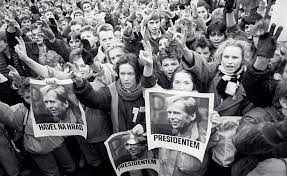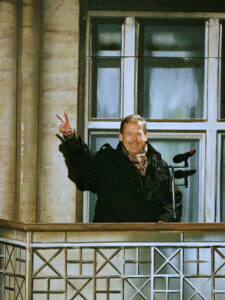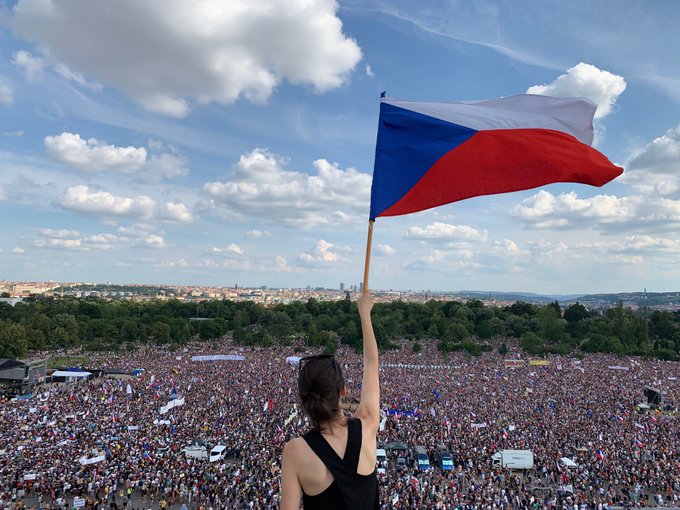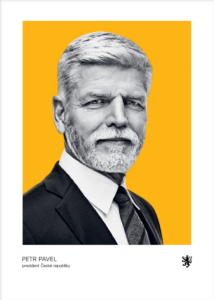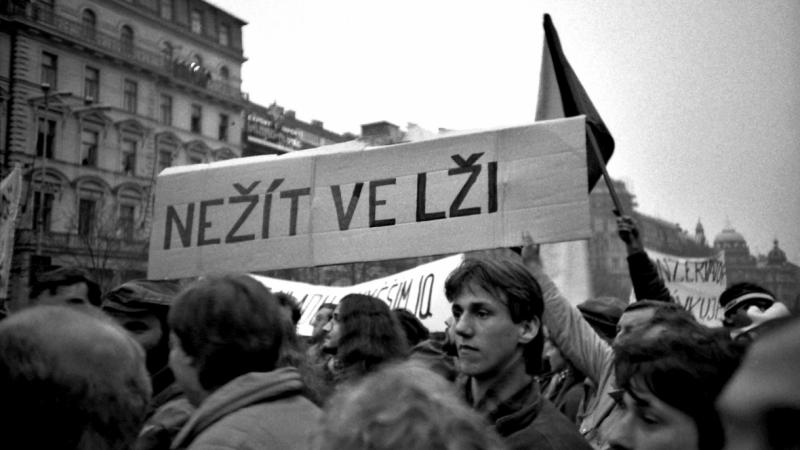
WHO LET THE DOGS OUT? Seems like the Czech Republic did: RSF Press Freedom Index 2023
Media . Politics . SocietyMay the 3rd: the National Day of Press Freedom. Dear diary…
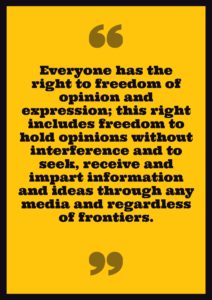
Freedom of speech and information is one of the fundamental human rights and building blocks of democracy.
The ability to freely express one’s opinion reflects in the freedom of press. Also, on the other hand, this is a mutual symbiosis: journalists are considered to be the watchdogs of democracy – guards of this living organism, the self-regulating world of freedom, whose biggest threat is it’s own freedom, their germ of doom, as already Greek philosophers noticed thousands years ago…
Picture: Universal Declaration of Human Rights, Article 19 (9.5.2023).
RSF
Every year, an international non-profit organisation Reporters without Boarders (RSF) publishes Press Freedom Report in order to raise awareness and defend fundamental human rights. Based on multiple criterion, an index of journalistic freedom is calculated. I’d like to elaborate on my home country’s socio-cultural context.
Dogs in the Czech Republic
According to RSF, in this year’s Press Freedom Chart the Czech Republic is ranked 14th out of 180 countries, with the score of 83.58.
In past ten years, in most cases lower ranks had been achieved: the index value has been fluctuating between numbers 75 and 90. There had been a sinking global score tendency, which seems to have noticeably changed in the year 2022.
Data retrieved from RSF Index List (9.5.2023).
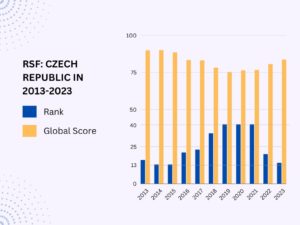
Czech media landscape
Our media landscape is diverse. State media consist of trustworthy Česká Televize (ČT) and Český rozhlas, and I’d say they are doing their job well. Majority of media is owned privately. Owners of Czech private media are transparently mapped by MediaGuru.cz.
But – let’s look beyond numbers; how does the overall atmosphere look like?
Perception of (not only) speech freedom in the Czech republic
Our country is relatively new: it has a long history, but was finally established 1.1.1993.
Last century: regime restrictions
Before, in order to gain our independence, from political matters we used to build a country together with Slovakia (Czechoslovakia).
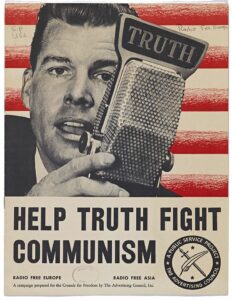
After World War II, we were under Soviet influence more than 40 years, with a communist government. People lived in a country, where the freedom was restricted (judicial murders and censorship happening); and so was the freedom of speech; all the information flow was gatekeeped by the regime.
Picture: Radio Europe, source of information.
Czech symbol of freedom: Velvet revolution 1989, the fall of communism and 1st President, Václav Havel (sources linked to images, 9.5.2023).
Therefore, with such history, Czech people learned their lesson and nowadays are aware of the value that the freedom has. There are many independent civil initiatives that try to take care of our freedom by transparently informing public. The range of involved organizations is wide: from independent press organizations to student organizations: Deník N, HlídacíPes.cz, Lupa.cz, HlídačStátu.cz; Díky, že můžem,…
However, every country has it’s ups and downs – and also we had to be aware not to lose what we’ve so long fighted for.
Recent challenges: Ex-president Zeman calling journalists cesspits
Knowing how fragile democracy is, Czechs had been facing in last few years quite disturbing times:
1. conflict of interest: ex-prime minister Andrej Babiš, a billionaire, at the same time owner of biggest Czech media group Mafra;
2. pro-Russian ex-president Miloš Zeman spreading distrust in press: calling journalists „novinářská žumpa“ – “journalistic cesspit”; compilation of his “best moments” made by DVTV.

The power of speech: the barking of Million chvilek
People started perceiving such climate as a threat to democracy; an activist movement Milllion Moments for Democracy (Million chvilek) was established and started “barking”. It alarmed about potential threats to our democracy if no steps would be taken – and organized demonstrations.
Massive euphoria: new democracy era?
These actions led to a “happy end”. Our country experienced a massive change in last year:
1. parliament elections: new government and prime minister (Petr Fiala) were elected (thanks to intervention of Million chvilek, people were motivated enough to go vote; moreover, traditional right-winged parties built a winning coalition);
2. presidential elections: new president Petr Pavel (pro-western).
Back to where we started: freedom. As democracy, speech freedom can harm itself because of its freedom; it enables any content to be made and spread, and so the conflict between truth and untruth (nowadays disinformation) arises. We have to take care of the truth being seen.
Headline picture: “Not to live in a lie”. Velvet revolution, Prague 1989. Source: ČT24, author: Jaromír Čejka (accessed 10.5.2023).

